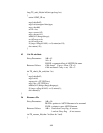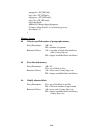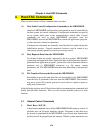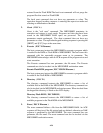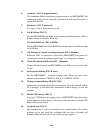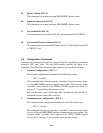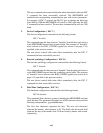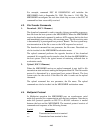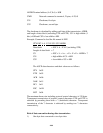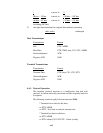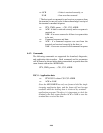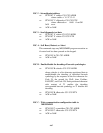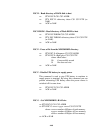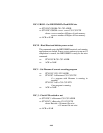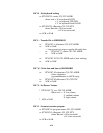
4-63
For example, command ESC M 199009262345 will initialize the
MR350MKII clock to September 26, 1990. The time is 11:45 PM. The
MR350MKII reconfigures the real time clock chip as soon as the ESC M
command has been successfully received.
4.3. File Transfer Commands
1. Download ( ESC L filename )
The download command is used to transfer a binary executable program or
data file from the host system to the MR350MKII. When the MR350MKII
receives the download command it sends an ACK response back to the host
and immediately puts itself into a file receiving state. The file receiving state
is determined by a preassigned host protocol Kermit. The host system may
start transmission of the file as soon as the ACK response has arrived.
The download command has one parameter, the file name. Download can
also be invoked via the MR350MKII workstation menu.
The upload command performs the opposite function of the download
command. It is normally used to transfer a data file from the MR350MKII to
the host system. This is the typical means of retrieving collected data in
workstation mode.
2. Upload ( ESC U filename )
When the MR350MKII receives an upload command it puts itself in file
transmission state and starts sending the designated data file. The file transfer
protocol is determined by a preassigned host protocol Kermit. The host
system waits for the arrival of the data file after it sends out the upload
command.
The upload command has one parameter, the file name. The upload
command can also be invoked via the MR350MKII workstation menu.
4.4. Multipoint Protocol
In Multipoint operation the MR350MKII uses an asynchronous serial
multi-drop protocol for communication with the host computer. Note that to
make this protocol operable an RS-232 to RS-485 converter is needed
between the host and the MR350MKII. The terminal protocol consists of
commands and responses of the following format:
Symbol Description
=> Transmission from host to terminal
<= Transmission from terminal to host



